Brick & Mortar Meltdown reaches “Crown Jewel in American retailing.”
Brick and mortar stores face a tough environment. Retail is shifting to online operations. E-commerce sales have surged at an annual rate of about 15% in recent years. But sales at department stores and smaller stores are deteriorating. Malls have hit hard times. Retail bankruptcies have formed a horrific litany. And the signs are visible everywhere. So here is the excerpt of an essay with haunting, beautiful photos of this meltdown as seen from the sidewalk on Manhattan’s glorious Madison Avenue. The essay, “Walking the Avenue with a Camera,” was originally published on New York Social Diary.
By David Patrick Columbia, New York Social Diary. Photos by Pierre Crosby:
Here in New York we are experiencing a de-accessioning of retail space for retail businesses. We are seeing more store vacancies than I can ever recall in the last six decades. The City is a changing system socioeconomically. Neighborhoods come and go. In the past twenty years there has been a trend for restoration and revitalizing the communities. You can see it in all the boroughs, especially when it comes to housing. Brooklyn and Queens and Upper Manhattan, including Harlem are good examples of this progress. Although it has got more, much more expensive for the average working person, just to provide a roof over one’s head. In the 1960s when I came here out of college the rule of thumb for rental expense was one week’s salary a month. I know people today who are paying more than 50% of their monthly for shelter.
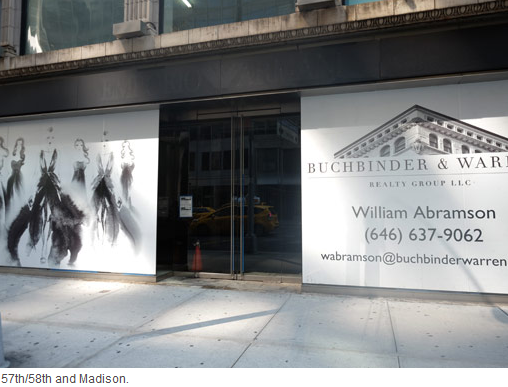
What is staring at us now are commercial vacancies. It looks like failure. Failure to succeed with one’s business. Madison Avenue, the Crown Jewel in American retailing for many decades (it was originally an upscale neighborhood of townhouses a century ago), is now looking like the guy you run into on the street panhandling who is missing a lot of teeth.
Many people are talking about it, but only in passing (“did you notice …?). Others say it’s because everyone shops on Amazon. And doesn’t go to the store anymore. I recall riding home in a taxi one night more than ten years ago, with Vera Wang and a couple others. We were riding up Madison Avenue heading into the Seventies when one of passengers remarked to Vera that she must be making a fortune in her shop in the Hotel Carlyle building on Madison and 77th Street. Vera said then that nobody with a shop on Madison Avenue made any money because the rents were so high. They justified the rent for the prestige it brought their (expensive) product.
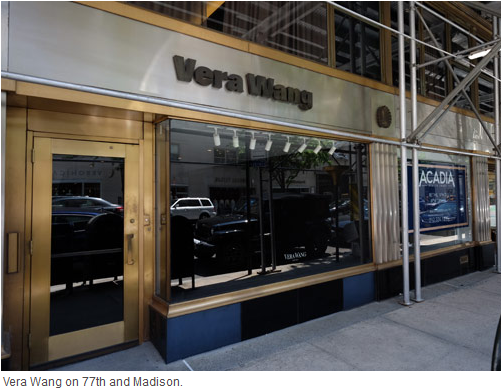
This current vacancy trend is unusual and it’s going on all over the city and here in Manhattan from south to north from east to west. Last week we asked Pierre Crosby, a new photographer, if he’d photograph all the vacancies on Madison Avenue from 57th Street to 92nd Street, just to get an idea of the magnitude of the problem. Pierre covered the avenue this past Sunday afternoon when the city was quieter, from 57th to the low 90s. We told him to photograph all the empty storefronts as well as some of the businesses that are still operating. Vera Wang, coincidentally vacated her space (where she was located for decades) last week. In the 33 blocks (a mile and a half), Pierre found 50 vacancies.
What does it all mean? There are some sensible, practical guesses and then there is the unknown. That great palatial mansion that the Vanderbilts built in the last decades of the 19th century for what would be hundreds of millions in today’s dollars, was sold by Mrs. Vanderbilt Belmont forty years later in 1932, for $20,000. That doesn’t seem like a comparable situation to ours on Madison Avenue but it does serve to remind that value varies, even with wild volatility at times. Are we there yet?
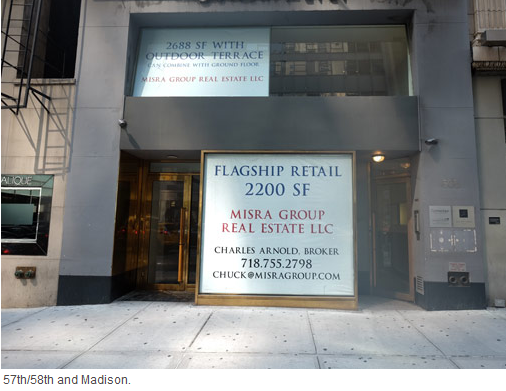
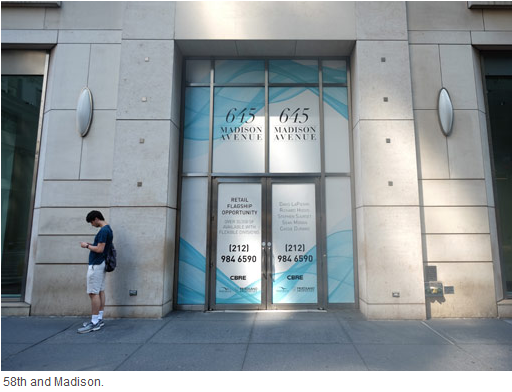
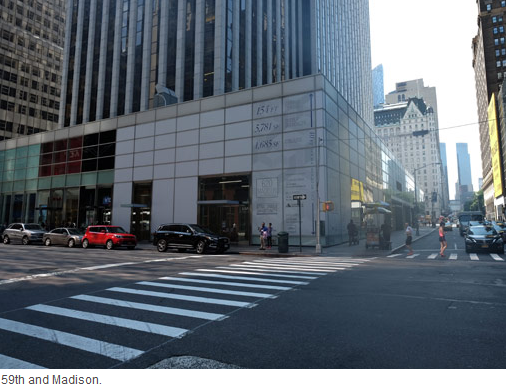
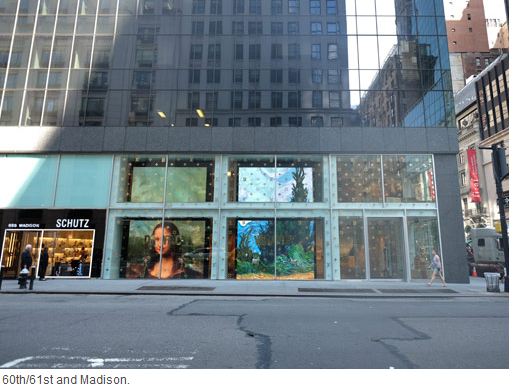
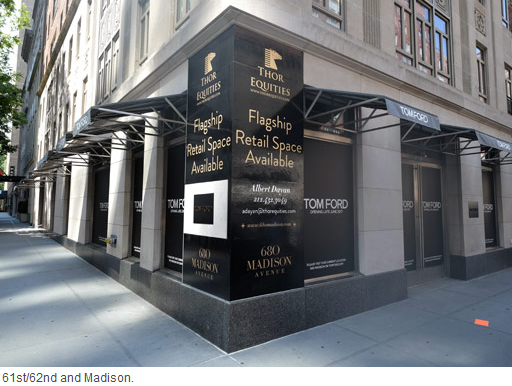
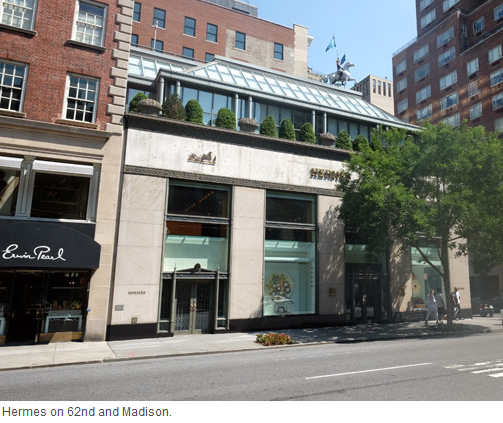
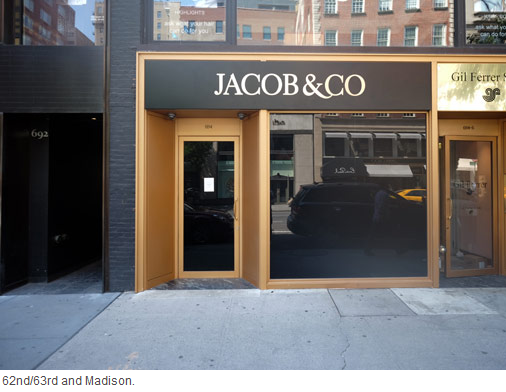
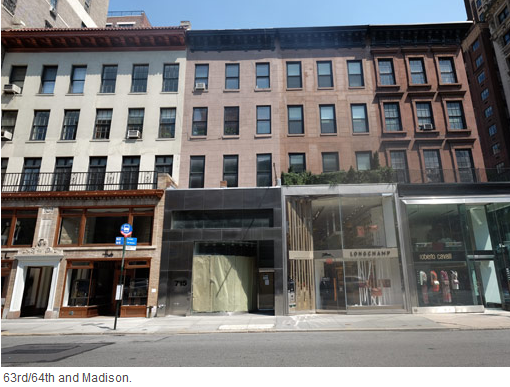
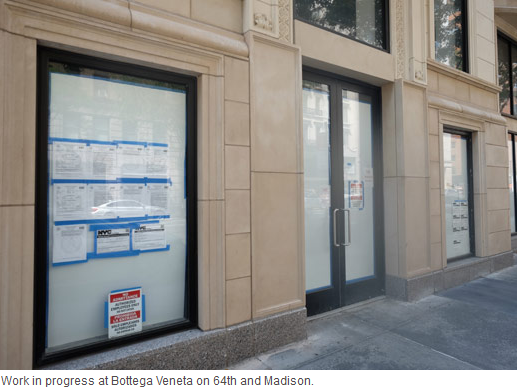
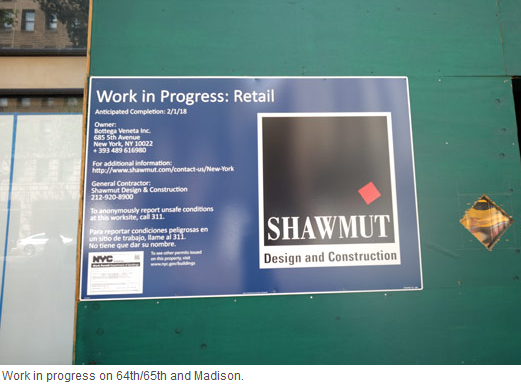
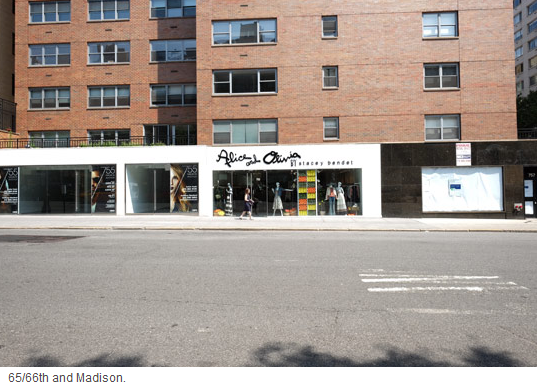
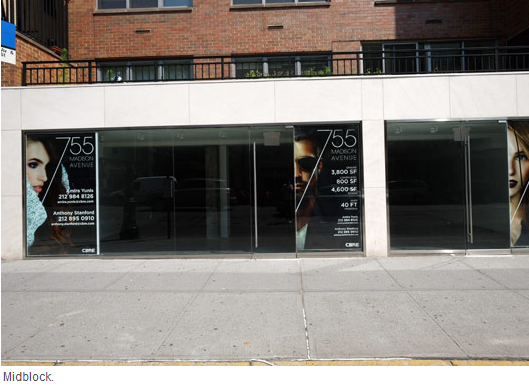
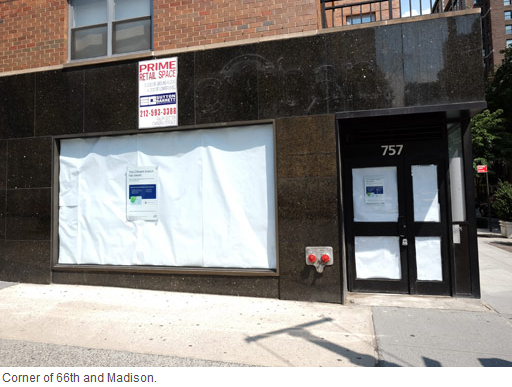
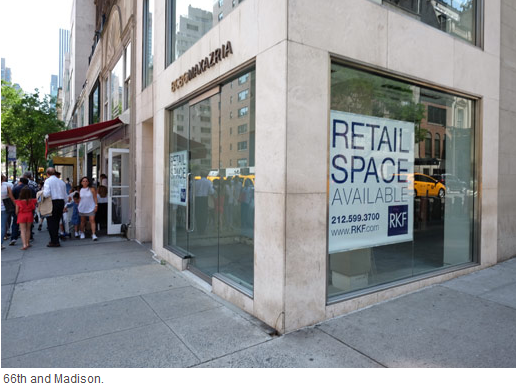
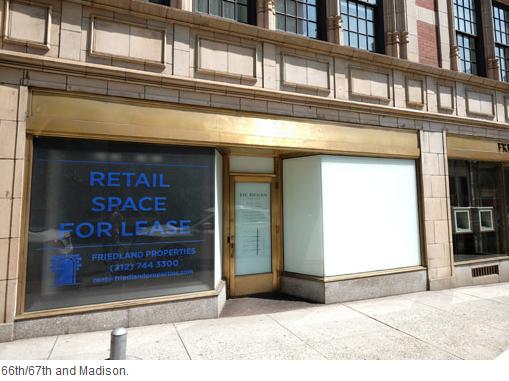
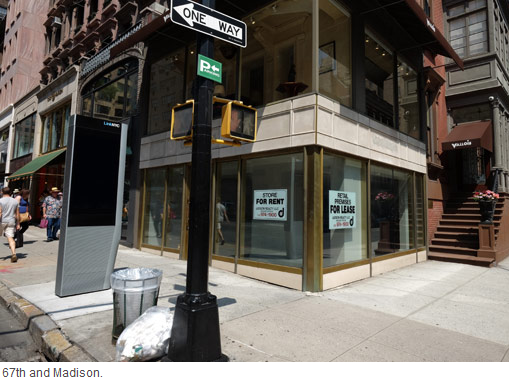
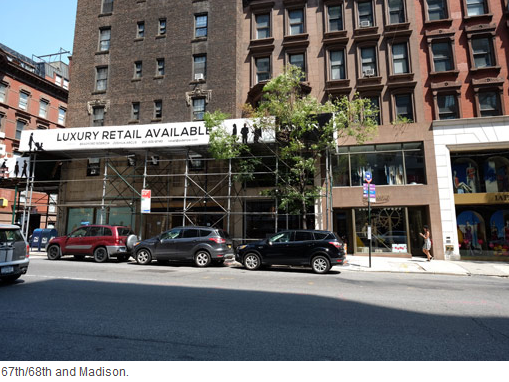
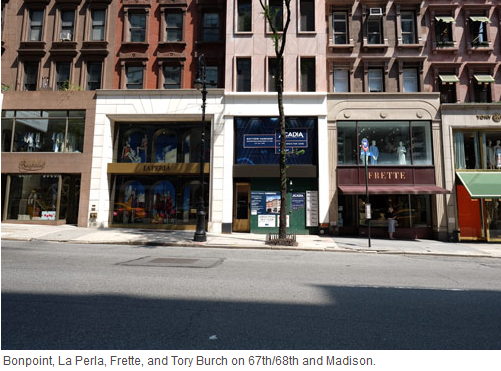
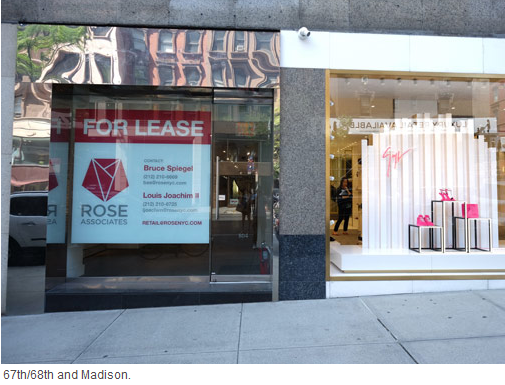
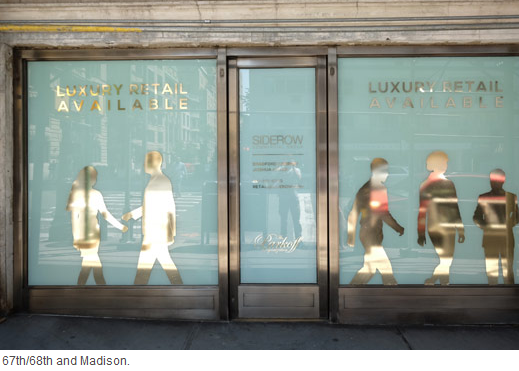
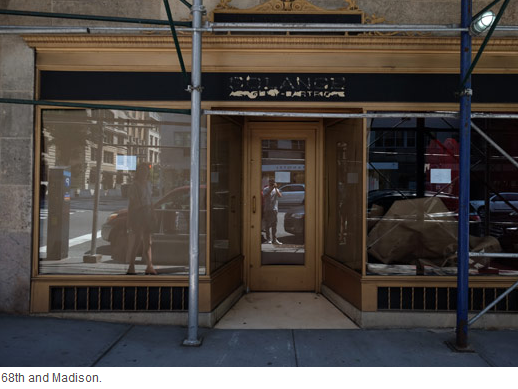
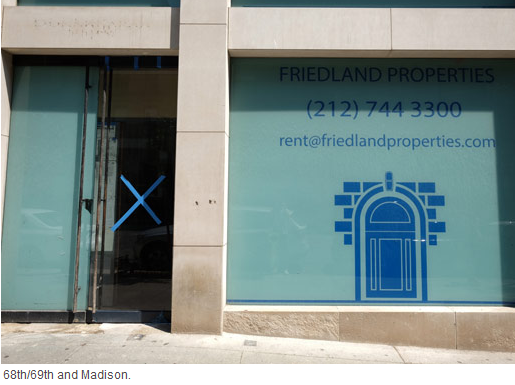
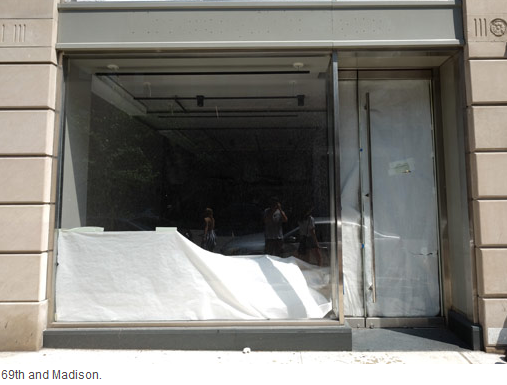
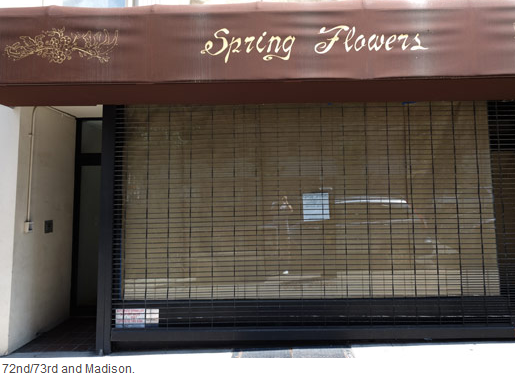
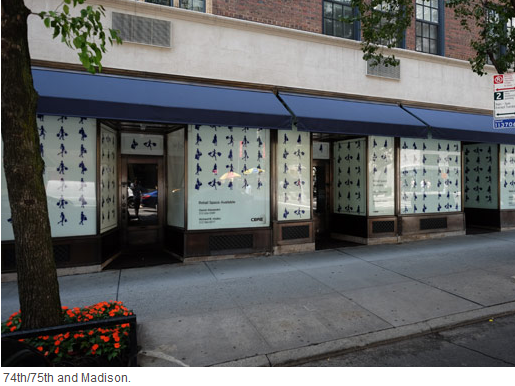
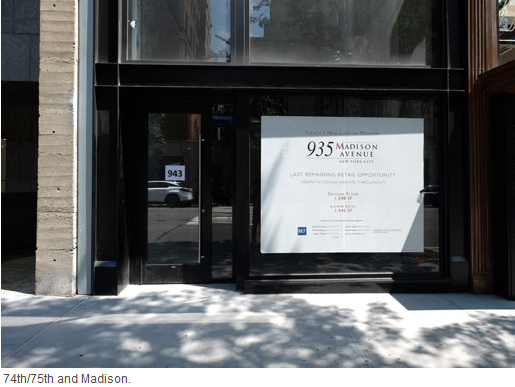
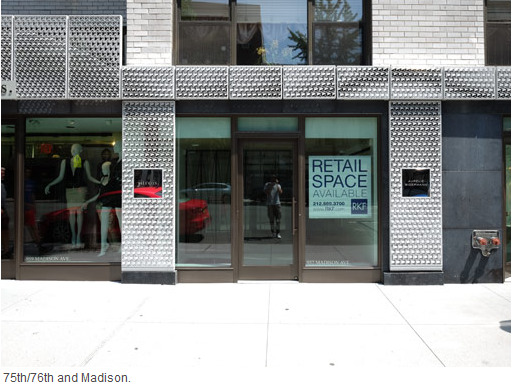
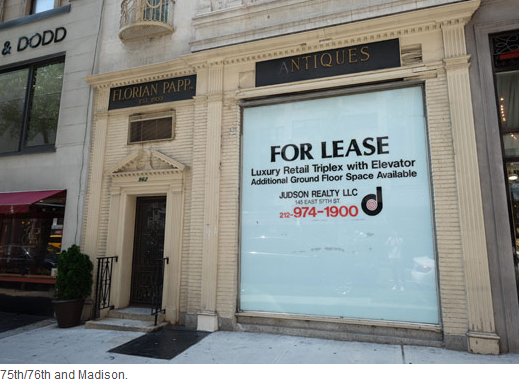
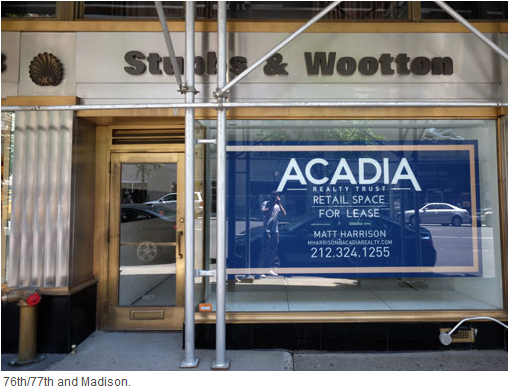
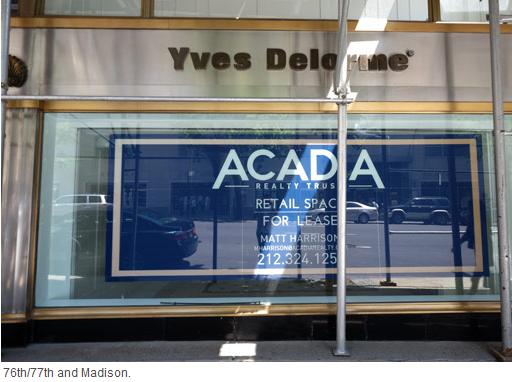
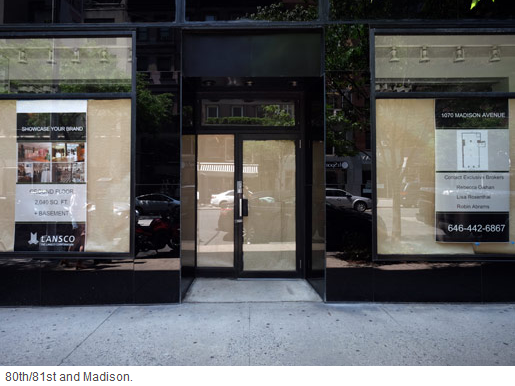
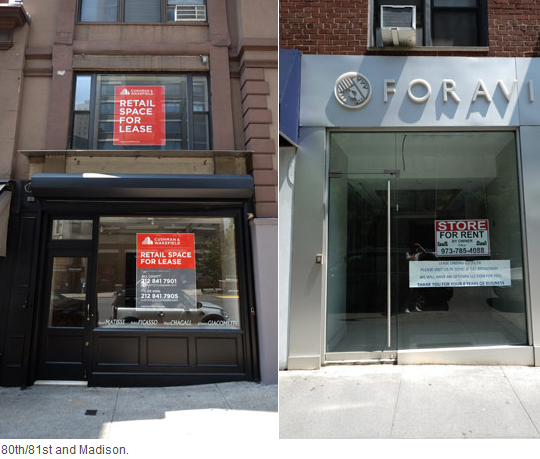
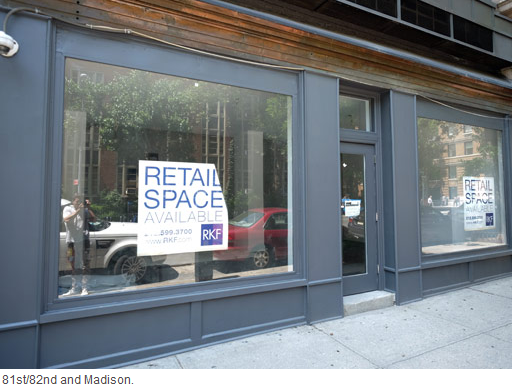
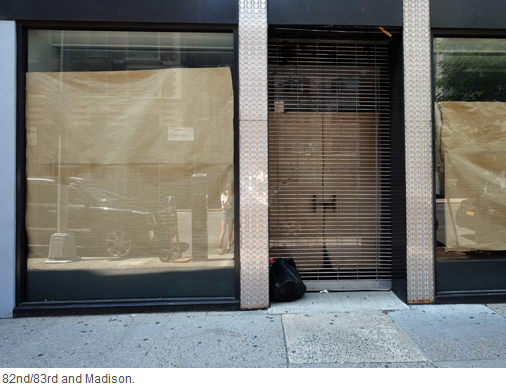
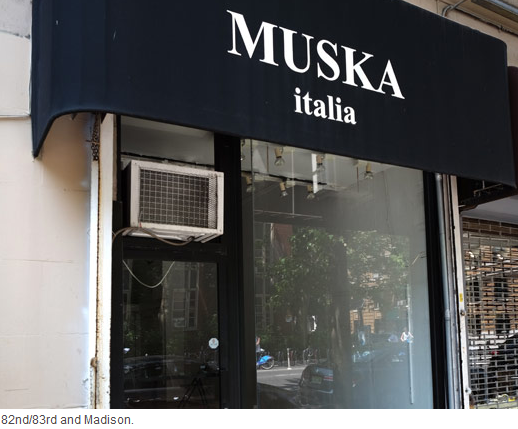
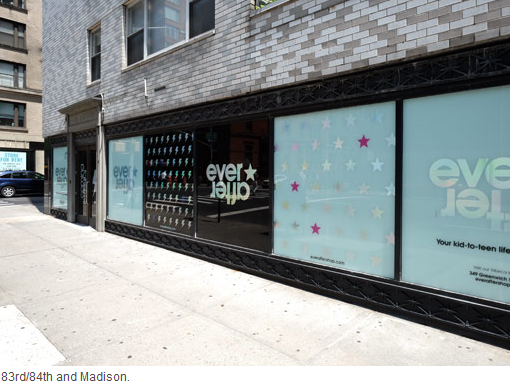
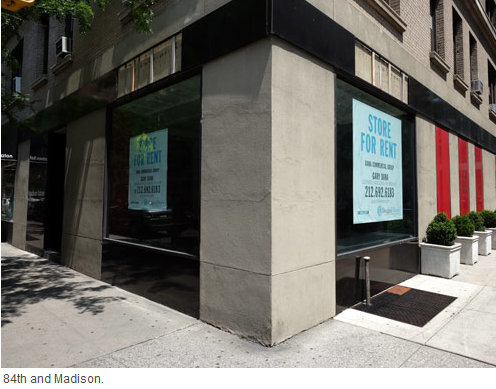
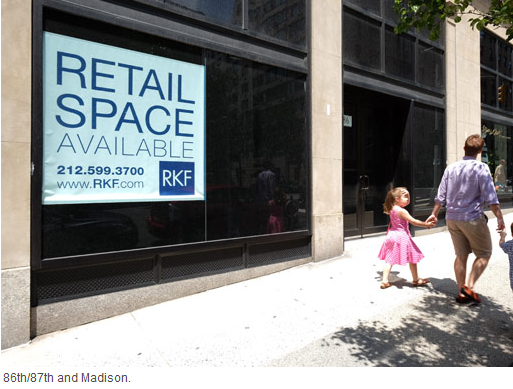
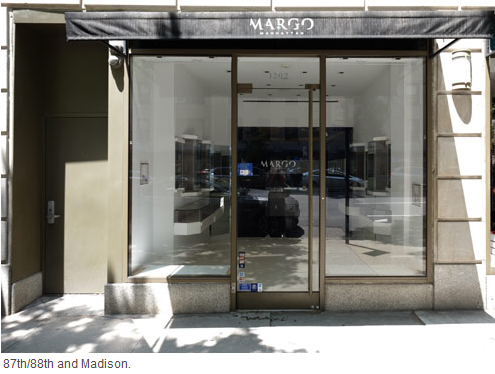
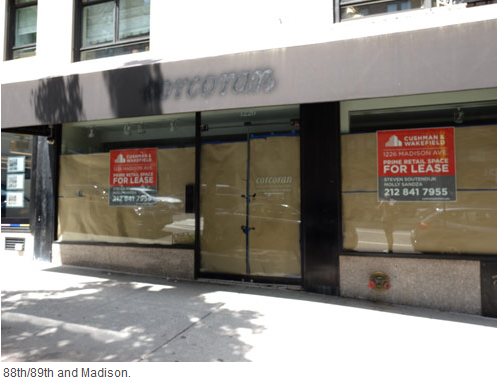
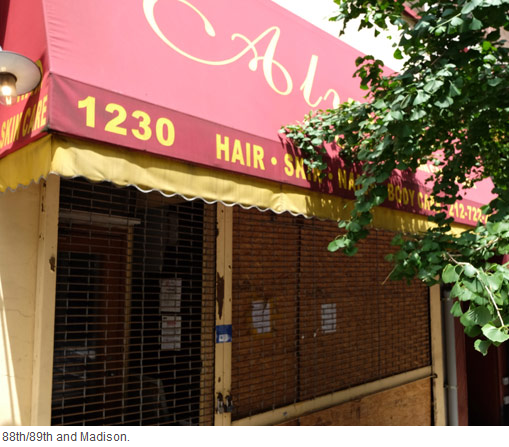
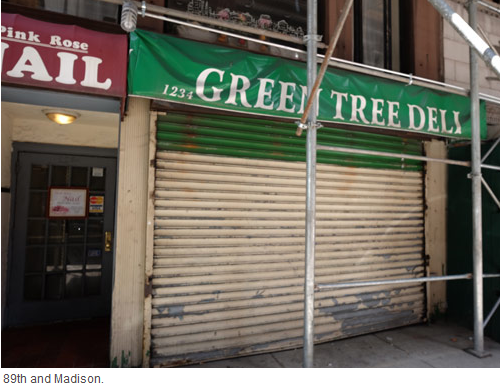
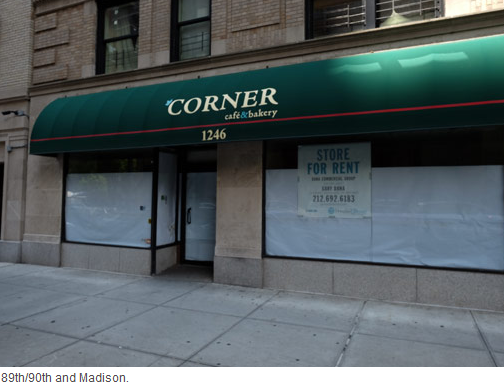
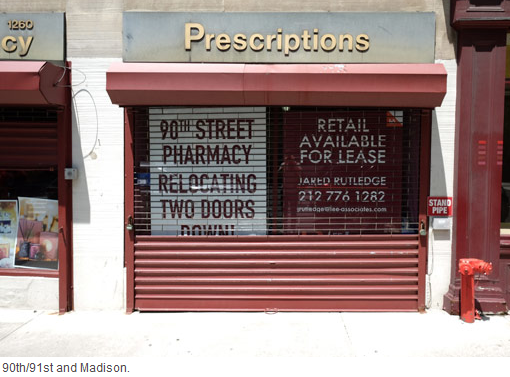
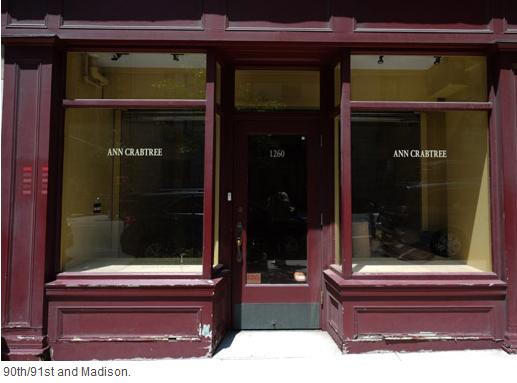
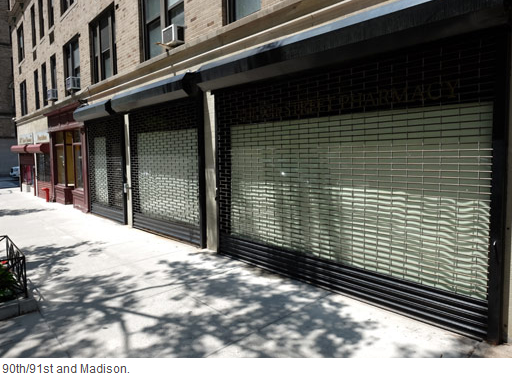

By David Patrick Columbia, New York Social Diary. Photos by Pierre Crosby.
You’d think Amazon’s surging sales would be a boost for UPS. But no. Read… Is Amazon Eating UPS’s lunch?
Enjoy reading WOLF STREET and want to support it? You can donate. I appreciate it immensely. Click on the beer and iced-tea mug to find out how:
Would you like to be notified via email when WOLF STREET publishes a new article? Sign up here.
![]()


Still miffed the historic FAO Schwarz toy store had to close.
It’s only castles burning, fine someone whose turning and you
will come around. ny
what happens when the internet goes down long term?
That’s a lot of retail space available. Do you think situations can improve after September when the fed will start printing
Vacant space is stark reality, printing $ is only the illusion of it, and it will wane, just as America has.
A major disconnect with QE is that the money was/is never directed to the right places.
When you attempt to inject money into the economy through the banks it is lost cause as the money goes directly into the black hole bank vaults and is never seen again until it is used for stock buy-backs and leveraged buy-outs.
Far better to simply cut a check for every person that filed an income tax return last year for $1,000. To be sure it will still eventually wind up in the bank vaults, but it will circulate in the economy several times before it does, and the large majority of people will spend it rather than saving it.
That’s truly quite the photo essay. But although I have never been to NYC I have seen the same thing, happening for a good long while. all across America’s small towns. It does not seem that anyone documents that though.
It is sad. Some towns out of the whole set of towns always are having a hard time. But the secular trend of edge-of-town strip malls and big box stores either at the edge of the town or in the next town over have exacerbated things and really destroyed the majority of small town centers.
Cheaper products from overseas and cheaper distribution too through scale.
On the other hand, I think I’ve seen it documented countless times. It’s an old story by now, going on perhaps 40 years or more. Hence some of the hate a Walmart gets when it expands into neighborhoods with something (anything retail, I mean) to defend.
The high rents for NYC retail space are no longer justified. These stores don’t turn a profit. They only serve as advertising for their brand. Landlords need to chop them up into much smaller spaces so any tenant can actually afford the rent. Flagship stores in the most expensive real estate markets are a thing of the past.
I’ll go further – this looks like another page of the commercial real estate melt-down. I recall being told that a commercial property’s value is determined by the rental income it generates. Thus, commercial “flippers” can make money by jacking up the rents as soon as they can after they purchase a building, then selling the building. It works until the last rentier has to charge more rent than the market can bear in order to make the mortgage payments.
Here, the parasites have sucked too much blood from their hosts – and the hosts are withering away. As margins get squeezed, and having a storefront in a high-rent area no longer generates an overall profit, people leave. The more empty storefronts, the less status is derived from having a store there – causing more vacancies, and more downward pressure on rents.
I view this as the tottering of another domino – lots more dominoes are about to fall. When the Fed goes hawk, and interest rates start climbing, it’ll be midnight for commercial real estate. Plus, the tax cuts make tax deductions look less appealing – a tax deduction that looked good to someone in a 50% marginal rate will have a different appearance at a 25% marginal rate.
In short – it’s a good time for retailers to move to a short-term “pop-up” store model… there’ll be lots of landlords looking for any income they can get, and making their properties look less like a ghost town.
You people are looking at this all wrong. Obviously the problem is that the traders who work on Wall Street are not being paid enough to allow them to continue to shop locally. Providing unlimited interest free money to their CEO’s just supplied the capital to tear down their 30,000 sq. ft. cabin in the Hamptons and build one more appropriate to their position in society. Trying to solve Madison Avenue’s problems with FED policy obviously wasn’t enough. It’s time to fly the length of the Street every lunch break and kick bundles of money out the helicopter doors.
Maybe, but traders still get paid a lot and may be changing their habits.
The traders might be using their money online, paying an assistant to source product to save them time, buying from abroad, hoarding money, investing it otherwise. The more you work, the less time you may want to spend leisurely browsing luxury goods in public. It is a concerning trend regardless – the decline of local retail, fewer jobs for humans, and increase in CEO’s insanely high pay for god-knows-what value half of the time.
Sarcasm at its finest .. in the spirit of the failed ‘ Trickle Down ‘ Reagonomics theory
Love it when somebody is dense enough to take my sarcasm seriously and respond to it in that spirit.
My all time favorite movie vignette is from an old Peter Sellers movie entitled “The Magic Christian”. Peter Sellers is a wealthy peer who lives for his practical jokes. So a hour before lunch time at a London park where all the traders enjoy their lunches on the rare sunny days workers rapidly erect a large swimming pool and bleachers. Tanker trucks arrive and fill the swimming pool with raw sewage. Just as the traders are beginning to flee, holding their noses, Sellers arrives with a boom truck and is levitated over the pool where he begins throwing handfulls of hundred pound notes into the shit. Since they are stock traders, as you can imagine none can resist the lure of free money—-.
Future refugee/homeless space.
If the small town is an hour or so from a city, well-managed small businesses selling what the lawyers call “necessaries” are doing well, at least around here.
Amazon etc. have taken some of the physical goods business but services, groceries, prescription drugs (for example) are selling as usual.
Small town business contraction seems to be more related to population loss (loss of jobs) than anything else.
‘Some’ of the small towns business may do ok if selling neccesaries. But for every town that has such a store, there are dozens of the same sort of businesses in surrounding communities that have dried up and blown away. Case in point, the small town I grew up near was 2500 population when I was a kid. It’s still 2500 population, but in the last 50 years it went from 3 grocery stores to one, one full line ag dealership to none, three new auto dealerships to one used dealer. Three parts stores to one. And the list goes on. The only thing there are more of are city employees and police and sheriff deputys etc.
Where did all that business go? Well to a larger 25,000 population regional small town about 30 miles away. That town has grown by leaps and bounds, while the dozens of towns within 50 miles of it have dried up.
I realize that hasn’t much t do with NYC, but just pointing out that its not about population growth.
@John. Agree. And even those larger 10,000, 20,000, and 30,000 peopled towns often have a shell of a downtown.
Riverhead NY Which at one time was a great commercial area is now 60 percent vacant retail stores due to the emergence of a retail corridor constructed nearby for all the big box stores Its really sad watching it wither on the vine
I agree, but there are of course two major causes lately in the U.S. As you mention, always present population changes, which make some towns winners and other losers. This has been going on ever since there were towns that were created by anything other than agriculture.
But cheap gas and big box stores have made the destruction nearly universal for small towns in some areas of the country. That’s really been different over the last 40 years.
There is the exception of well-located small towns, which can attract either tourists or become a bedroom community of sorts, either of which can revitalize a downtown.
Amazon ? Hell Blakeslee … get with the program . Amazon’s just the newest kid on the block in line to destroy small town / city American … but its was Walmart that began the destruction … and despite all the hype about Amazon [ otherwise to be known as the BORG ] .. Walmart is still at the head of the pack . Let Walmart in or near your town / city … and watch Main Street collapse before your very eyes within 36 months or less
50,000 plus pages of “new” government rules and regulations have strangled all business owners, including landlords in the past eight years. Let’s hope that sanity will return. Coolidge, Reagan and JFK understood the principles of a rising tide lifts all boats. Please help get the authoritarian bureaucats off our necks before we all go out of business.
The rising tide of the past 8 years only managed to lift the yachts.
Clearly the issue exposed in this essay is exorbitant rent and the shift away from brick and mortar in retail sales. Can you cite even a single example of how authoritarian bureaucrats have contributed to the issue at hand? If so you should have done so when posting this meaningless cliché.
Well,Kevin’s comments would be a “meaningless cliche” to people that probably have never owned a business. shall we start with the minimum wage,obama care punitive health insurance requirements,outlandish fees for “licenses” and permits and soon EVERY small food joint will be forced to hire a nutritionist and post calories,fat content and the resulting dangers of said food to your health (it’s coming).so you can belittle business owners concerns all you want,they exist in the real world.
Self employed business owner for 48 years. Here is one stupid example for you since you have no feet on the ground. The last, THE LAST retail space we had was 15 years ago. To be more efficient, we chose water cooled air conditioning. The system was designed to be able to function at the bottom of a swimming pool. The ‘code inspector’ made the contractor tear out the system and MOUNT IT 12 FEET IN THE AIR so it would be above the “100 year flood plain”. He had to build a cement structure to mount it on. This jackass added $10,000 to the cost. Then comes the electrical inspector. The electrician had all the receptacles discreet, meaning each had it own neutral and ground. NO…this jackass inspector made the contractor pull out the wire and have a COMMON neutral for every two circuit breakers and one single ground to all receptacles. That added another 3,000 to the cost of opening a retail store.
So, I won’t even go into signage, wheelchair access which required a new door 1 inch wider costing 2,000, and the rest. We thru in the towel finally and wrote off the loss. Then the city said we had to buy a ‘going out of business’ permit, even though the store never opened. Now do you understand?
What I will say is if retail dies, the government has a big hand in why. Who wants to go thru such for the tiny return. Indeed, this is why on-line is winning, at least until the government figures out how to mess it up, and the will. One has to remember it is all about having a rice bowl, and making sure that rice bowl is there and full. The permit department should be called “The obstruction of Business department”.
This cured us of any retail forever. And it cost the employment of 20 people who would have had jobs.
Our Government, Destroyer of Jobs
August 12, 2015
“Correspondent/entrepreneur Ray Z. was kind enough to share his experience of trying to open a bagel shop and create six jobs.”
http://www.oftwominds.com/blogaug15/destroy-jobs8-15.html
The tale’s conclusion:
“So, I quit. They beat me.
It always amazes me when politicians use the sound bite of how they will “create jobs”. Well, I am an entrepreneur and have created thousands of jobs over the past 25 years. I have also be responsible for over 500 million in savings to my customers over that time period. This means that 500 million dollars of wealth that was saved, could be put into new technologies, new business ventures for into savings.
I am a job creator. But here are at least six jobs that I won’t be creating.”
MeMe
And best of all you get to become an unpaid tax collector for the government. All small business people know the myth of the “voluntary taxation” system. 99% of the population doesn’t have a clue.
yep, between permits and rent and everything else, better to just go read a book.
rent’s too damn high, model is broken.
You mean like the way the British Government eliminated the “burdensome regulations” barring the use of flammable cladding on high-rise buildings?
It’s true that regulators need to start thinking in terms of systems rather than simply banning things. However, I’m tired of hearing people eager to take shortcuts which place other’s lives in danger whinge on about “burdensome regulations”.
The Grenfell Tower fire reminded me of the Hartford Hospital Fire in 1961 where 16 died. My neighbor was a patient at the time, but he got out unharmed. It turned out that the “fireproof” acoustic ceiling tiles burned like seasoned oak, and the linoleum wainscoting that ran a few feet up the walls burned even faster with toxic fumes. These building materials were approved by the fire and building codes.
At least the reaction from the tragedy got the fire codes for hospitals and other public buildings changed.
RepubAnon,
The regulations for hotels and rooms to let in the UK are stringent. They cost those renting out premises considerable sums.
The tower in question was owned by the government. The government did not want the rules that apply to the private sector to apply to their own fiefdoms.
“Hotels, Boarding Houses and like Premises”
http://www.firesafe.org.uk/fire-safety-in-hotels-boarding-houses-and-like-premises/
Requiring fire proof materials is hardly an example of out-of-control government. In fact, it is exactly the problem of out-of-control government.
1. Government employees cannot be sued, regardless of how stupid they are.
2. On a job like Genfell Towers, the required/acceptable material should take less than an hour to confirm and a few random inspections to check.
3. Government solution to a Government created problem is always more Government.
The ignorance of unaccountable Government and their employees is the classic case of 100% authority and 0% responsibility. A years long “inquiry” ought to provide plenty of time to obfuscate and shift responsibility some where else.
absolutely good point. The high rents coupled with government mandates pushes a business in the “red” .
Not sure what these hidden costs are in NYC but i can say with a reasonable degree of accuracy they must be substantial.
The “hidden costs in New York”…labor unions. Ask anyone who has ever had a convention in NY…you can’t move a chair without a union man doing it for you. And then you get a bill. Retail must surly follow along this line.
I’m sure that regulations could be simpler, but aren’t businesses somewhat at fault? General Motors knowingly just made a car where the key fell out of the ignition and the driver lost the ability to steer. Oil companies pump out all kinds of toxic chemicals into the environment affecting peoples health. A landlord could probably insulate his property with asbestos cheaper then fiberglass insulation. Most companies and want to externalize all of their costs and most have deep pockets and plenty of lawyers to make sure they can. Sure government rules and regulations could be simpler, but unless something is spelled out as against the law it isn’t against the law. Do you want a country where corporations aren’t held responsible for their products or their actions? If you want an idea of how corporations really feel about rules and regulations try reading any contract you sign with one.
It’s a question of balance and it’s impossible to get it perfectly balanced. Government may be heavy-handed with regulations and companies may commit abuse in areas not regulated or poorly regulated. Policies and regulations must be adjusted and tweaked case-by-case. The worst mistake is falling in the trap of generalization, e.g. “government is bad for business”.
Never mind New York. Tell us the TRUE office vacancy percentage in SF. Or are you afraid all the corrupt Indian and Chinese money will stop flowing in.
BTW, they are reporting false demand for loans at Wells.
“BTW, they are reporting false demand for loans at Wells.”
Imagine my surprise. High moral standards, lets have lunch.
What sugar, fat, salt, is not enough, then how about buying the ‘lender of last resort’ in Canada.
Look into Champion Mobile Homes, that is a gem of a story.
Exactly the same in the UK. More people buying online. High rent on units. Apart from the big players on the high street, I don’t know how the smaller businesses survive.
We have clothes shops which have nobody in them, specialist candy stores, candle shops, jewellery shops always empty. Complete waste of time.
The only stores-shops which seem to do okay are food and mobile phone shops.
Startling photos, no doubt. But what is the historical vacancy rate for this stretch? What are the rent trends (besides just “high”)?
Just a passing thought, I can’t help but wonder if this is related to the massive buying of RE by foreign entities (Chinese) who own but do not occupy their properties? In times past those who could afford upper East Side property — and lived there — could afford to shop these boutiques. Empty apartments don’t generate retail foot traffic.
Another factor may be the strong dollar and how it discourages purchasing by tourists, even the high end? With the Pound taking a pounding it could seem like Oxford St. is a bargain compared to Madison.
Madison Ave. was never a touristy shopping stretch. It was where the truly rich in NYC shopped, like Jackie O. I have never seen it look this bad, not even in the early 90’s when the ’87 crash hurt many Wall St. executives, and many shops closed.
I think your are right about all the foreign ownership of expensive non occupied real estate hurting the local retail. The same thing is going on in downtown Miami where many of the new buildings are mixed use. There is nobody around to shop or eat on those streets.
That’s very true I purchased a small farm in Sag Harbor NY at a bankruptcy auction in 92 from a Manhattan lawyer who had five mortgages on it and a very expensive cocaine habit He called me and said ” I hope you respect that property more than I did” An example of how high the prices are in those shops I purchased a gorgeous turn of the century art nouveau lamp in a small shop in northern NH back then for 1800 dollars and saw the identical lamp in an antique shop on Madison Ave listed for 20K
And now you might find that same lamp on ebay for a couple hundred. Its not that the lamp has changed, but rather that the demand relative to supply has fell off a cliff. Sure there are lots of millionaires and billionaires to whom 20k is nothing, but they probably don’t even appreciate a lamp like that, and those who might, already have all they want.
By mentioning your lamp, it could just as well be ‘you name it’. It makes for a difficult environment for retail shops.
John I seriously doubt that It’s highly collectible and if anything it’s going up in value not down It’s not relevant anyway because I don’t intend to sell it
I’ve been a decorative arts dealer since the 1970s, always visited Madison Ave to window shop. It was typical to see Art Nouveau and Art Deco objects at 10 times the auction or trade price.
I love sitting at Nello having a plate of pasta for $250.00 with a $35.00 glass of flat champagne.
I agree! But i scratch my head and am so surprised, like a Superball not bouncing off a wall! I understand the bricks crumbling at the stores catering to the poor and middle class cause they shop online, but these stores i don’t think u can shop online, Heavens, your paying thousands for a designer dress or pair of pants.. your going to wanna make sure they fit good! But what’s surprising is how they can be going out of business! I thought the rich were getting richer? Or have they lost there sense of fashion from there heaps of dough? I lived there and i remember going down there a few times and i don’t remember ever even a store closed! My sister lives in the city for years ..i just wrote her and she says the whole place is like a ghost town, that its getting worse.
When you are spending in the tens and hundreds of thousands for clothing or jewelry, you no longer go to them, they come to you.
Part of it is the crime issue, due to the financial crisis, nobody wants to talk about. The rich don’t want to walk around with a shopping bag from a designer store. It makes them a target.
Exactly Brad I’ve been thinking the same thing Why would the Chinese or Europeans buy real estate in the US with such a strong currency because ultimately that will change as it always does If I were in that position I’d be buying in emerging markets where I could benefit from the exchange rate in the future
Diversifying of currency risk. The Indian rupee has strengthened against the dollar recently. I have assets in both currencies, including real estate. For every dollar in the U.S. stock market, I convert a dollar into rupees and invest in the Indian stock market.
Wouldn’t it be cheaper to buy an ETF that invest in Indian equities, such as INDA or INDY? They have low expense ratios and are not currency hedged. If you are buying individual stocks on the Bombay exchange, what is the quality of financial disclosure of firms that are listed there?
True, you can by India ETFs in the U.S., but I’d have to bring back rupees already invested, pay fees, etc. I can buy individual stocks directly on the Indian exchanges for no annual fees and low account maintenance costs.
Discloure of firms on the BSE is fine, most of them. I stay away from government-owned banks (bad loans) and other public sector entities and firms with with opaque ownerships.
The rent is too damn high !!!
Yep,that’s what it all boils down to,isn’t it? the market needs to RE SET. it’s like the great recession and the move to online never happened. landlords are asking full “retail”. i always look at stores and wonder: with that 4500.00 monthly lease,how many jeans at 45.00 do you need to sell,how many 8.00 beers do you need to tap to survive,seems like a hopeless proposition in most cases? commercial (and residential) RE will adjust to the new realities eventually and fairly soon IMHO
The assets bubble is distorting everything. It inflates the price of everything. Business owners try to pass the extra cost to consumers but most won’t bite. It happens pretty much everywhere and in places you least expect, likeVietnam. Dining out in Ho Chi Minh City could be as expensive as in North America and I’m not talking about super upscale places. In fact, the food in restaurants there is often worse than what you can find in North America. A scam. They are talking about building a subway there. It’s about as crazy as wanting to build a 6 lanes highway for the Amazonians. That’s the kind of insanity bubbles produce.
Well done, as usual, Wolf, and indeed haunting. But I think the most haunting photos that show the (unrecognized by the FED) state of the economy is your recent pictures of the locomotives sidelined as far as you can see in the Arizona desert. I will never forget those photos. http://wolfstreet.com/2016/05/04/freight-rail-traffic-plunges-aar-april-report-photos-idled-engines-transportation-recession/
wait till they get the keystone pipeline 100 % online .
Trainmageddon !
I suspect that a lot of the high-end retailers trade came from wanna-bes, people who aren’t really posh but aspire to be seen that way. They try to dress for where they hope they are going. As the noose tightens around the broad economy, those people are having to cut back and the retailers who cater to them are feeling the pain.
The wealthy may still be doing fine thank you very much, but everyone else is not. Things will only get worse from here because fewer and fewer people have disposable income to spend.
Billionaires Row condos are now experiencing foreclosures in NYC. There have now been two in one of the most expensive buildings in NYC. The poverty is spreading.
I have a good friend who has a PHD from Berkeley and worked for Morgan Stanley for years before going on his own and he bought a upper west side apt two years ago after renting a crappy studio on 77th St off Broadway for twenty years and overpaying at 3K a month when he moved out I remember he was always waiting for the big reset that never came and he’s brilliant so everyone can be wrong
Woody Allen remarked he made more money from two Manhattan real estate transactions than he did from all of his movies. I believe. I’ve met tech executives that have similar stories.
Killing the goose that laid the golden eggs!
Commercial real estate speculation has priced all but the most profitable businesses out of the neighborhood due to the much higher rents required to service the loans, however vacant stores pay no rent.
While due to different factors, this has been happening in small town America for decades. The solid brick buildings, many with 2 floors of apartments over the stores, are slowly being demolished to be replaced with strip malls composed of temporary “Butler” type buildings.
Same is true in Warsaw on my street(Nowy Swiat) which is their Madison Ave Every year there are ineviteably two or three stores with papered over windows Even there the rents are suffocating for the small businesses
Thanks for sharing the links these, sir.
What is as astounding as the vacant store fronts are the vacant sidewalks:
Note the reflections in the Margo and Acadia store front windows. Where are the shoppers? They’re literally not there.
And the Nespresso coming in on 74th and Madison? good luck. There isn’t a shopper anywhere to be seen for blocks.
I think I’ll go down to 23rd avenue in Portland, OR and take some pictures. It’s the same thing- deserted sidewalks, for lease signs, 1/3 full restaurants.
If you like these, you’d love Dan Bell’s Dead Mall series.
There’s a Gucci store right in front of my main bank (located in a “hub” provincial town somewhere in Europe). Perhaps I go to the bank at weird hours but I’ve never seen a single customer inside.
The four/five persons staff always looks bored out of their collective skull.
I’ve seen the same in Zurich’s Bahnhofstrasse since 2014: empty luxury stores, staff waiting for Godot… the two only shops having a good time (like always) are Sprungli and the flower shop on the Paradeplatz. Only the occasional Japanese collectionist scouring shops for some ultra rare watch breaks the monotony. Gone are the days when busloads of Chinese, Malaysian and Russian tourists were wandering about and spending like drunken sailors.
Milan seems like a Dalmatian: some stores (Creed for example) are doing very well while most others (Gucci, Hermes etc) are deserted. The days of Asian shoppers lining up in Via Montenapoleone to get robbed are gone.
The shoot was done on a Sunday afternoon…..
Now you’re scaring me! i remember back at the “Lehman” event in 2008 i would go to starbucks to get coffee and was the only customer in there,that’s how bad it was!
How sad, and second the earlier comment that it is a shame FAO Schwarz closed, have great memories of that store. And also that foreigners who buy investment properties that remain unoccupied clearly don’t contribute to the local economy.
Looking at the next 10-15 years, I have wonder if Western Millennials will ever buy luxury brand stuff. I see a lot of reports that the luxury sector continues to grow, but I’ve read it is mostly fueled by Asian brand and image conscious consumers. Among my friend circle (late 20s to early 40s), I can’t think of a single luxury brand loyal person of the Americans and Europeans. In fact, ironically, especially the Angelenos seem to go out of their way to buy vintage or one of a kind or bargain (shabby chic) items. I heard of an entire wedding where the theme was vintage – all the plates were mismatched, etc.
Frankly, all the Millennials I know are either cash strapped or those that have money are very frugal. I don’t see us spending a lot of money as a whole, and certainly not on luxury items.
…Angelenos seem to go out of their way to buy vintage or one of a kind or bargain (shabby chic)…
Vintage and shabby yes, but hardly cheap. Have you ever been in one of those hipster clothing boutiques along Melrose or Sunset in Silver Lake? Prices that would make Armani blush.
And there they sit in the trendy cafes in their shabby clothing, mourning Hillary’s loss at the hands of Vladimir Putin while chomping on $18 free-range artisan avocado toast before retreating to their bohemian $2,800/mo. flat to spin some vintage vinyl.
L.A. Misérables
I don’t know about clothes but I’ve seen the prices of Volkwagen Type 2 Kombi’s (the stereotypical “hippie van”). They cost far more (in some case insanely more) than a brand new electric drive Nissan eNV200 van, which is the most expensive standard van you can buy right now. And a van you can use to earn a living. Even Type 2 Doka’s in non-running conditions (“some rust, needs new transmission and brake work”) are listed for over ten grands!
In San Francisco, several of these “hippie vans” – painted as hippie vans, only a lot kitschier – are driving tourists around on “San Francisco Love Tours.” One of the stops is right in front of my swim club at the waterfront, so I see them a lot. Looks like those tours are pretty popular. Perhaps the entrepreneurs behind these tours are on to something – that there’s a way to monetize “hippie vans?”
Even though New York and San Francisco get compared, I cannot imagine a rainbow painted VW bus doing NY Love Tours.
I am actually surprised in lawsuit-happy California minibuses from the 60’s and 70’s are actually allowed to operate.
Around here anything not up to date with the latest and greatest legislation would require a waiver to operate: unless the vehicle is owned by a muni these waivers are hard (read: very expensive) to obtain and those owning them will make sure as few as possible are handed out. Think taxi medallions in terms of rascality and cronyism.
LOL,you Sir are a poet!
Millennials spend a lot on tech, some of which is rarely seen.
Max–I’ve commented here about a possible comparison between Millennials and those of the Depression era. Your comments often match my thoughts.
I believe I am around your age. I used to buy luxury clothes and luxury cars when I was younger. Now, I buy plain clothes from Kohl’s and *shriek* Walmart. Perhaps out of necessity, but also from the sheer value! Am I getting old? Wiser?
I buy quality goods, such as glassware instead of cheap plastic crap. I just discovered an auction site that sells old glassware/goods (the -really- good stuff) for pennies on the dollar—I would have saved money if I knew of this site years ago. Maybe I’ll step foot into a vintage/second-hand store for the first time in my life one of these days…
So we have been looking at houses, though still not ready to buy in this crazy market. Anyway, a lot of listings say “great house for entertaining” and I always think who would I entertain? Social norms are changing – we have friends, not a lot only a few close ones, and we rarely entertain at all, and hardly ever at our homes.
We also don’t spend money when we go out, we do free stuff like go hiking, free summer concerts. Paid entertainment generally disappoints – movie tickets are crazy expensive, concert / sports even worse, and going out to eat has become a joke (high prices for small portions and abysmal service, no thanks). My general feeling is that the older among our generation are super practical and in a contraction period – less consuming, less spending, less socializing. Or maybe my friends and I are all miserly misanthropes and everyone else is more spendy and social?
Ditto on the luxury cars. It is at the TOP of my list to sell my German car ASAP, and it will be replaced with something more practical.
@Max and Bee –
I’m with you two – I have no money to spend on frivolous things – nor do I know many that do – I think Millennials, particularly the first wave like us are a cynical lot. I do know a few who try to show off, but they get weird looks from the rest of us. Frugality is what’s cool – faux wealth signaling has become a faux-pau in all but the worst of the City enclaves. It is dying quickly.
I think we have been so traumatized by student loans that none of us will ever take on debt again, assuming we can get free. Even those without loans saw what happened to the “college kids” and now have no idea what to do.
I know many that have simply accepted they will never own a home, car, or have a credit card due to student loans they cannot repay nor even get rid of with bankruptcy.
Bee, I agree on the Depression parallel, I find myself having far more in common with my Great Grandma (passed away, but made it to 101 and she told me many a story as I would spend much time with her) than other generations. Strauss-Howe at work??
I think the big thing people are missing though is Demographics – people touch on it, but the reality is that Millennials, statistically, are unmarried, and childless and without some major social recognition and solution, that’s not changing. This is in my experience due to poor economic conditions and the noose of student loans. Out of my Undergrad and High School classes, (250 each) I know 4 people in each class that have children. That’s maybe 2%. Back when I was born that was like 60-70% had families. I believe the official number is around 30%.
There are no babies – and this is a VERY BIG PROBLEM. Society must make it so we can start families and needs to do so ASAP. Look at Japan, they can’t even pay people to have kids because real estate prices have not been allowed to fall and the whole institution of family has been allowed to die.
If there are no children, and the youth are not relieved in some fashion so they can (student loans are the single biggest economic issue and are the filter for all financial decisions), and homes become affordable (2nd biggest issue – so we can have babies in them) the country is doomed. I mean that literally and without exaggeration.
Debt based fiat is a ponzi built on expanding population. The last 10 years have been utterly without children. I am just now seeing people have their first kid in their late 30’s and early 40’s. This is not the sign of a healthy economy at all. There are exceptions, but the data is very clear on this.
Almost all things economically can be explained by this – retail collapse -i.e. Gymboree bankruptcy (no kids, no need for clothes, lots of surplus from the Millennial birth wave around), car collapse (don’t need a minivan, my 2000 American Made Toyota is almost to 300,000 miles, I put a few hundred $$ a year to keep her going, hope she gets me through the PhD and I’ll garage her as a future collectable before I leave the country (my current plan)). Lack of Homeownership (no need to buy a house when you have no family, coupled with lack of reasonable and decently located homes in the $100k area mean no one can get a “starter home” on a modest salary – can’t work our way up to the expensive ones the Boomers expect us to buy). Declining grocery bills (no extra mouths to feed). Everything is tied to population. The circle of life.
The worst part is, Boomers are generally very unhealthy. I work as an engineer making medical devices, so I wish no one ill, but the reality is they did not take care of themselves at all. 50-70 years old is prime health issue time, something is going to fail then. We have the tech to fix it, but only if you do the legwork and are proactive. If you can make it to 75, you can make it to 100 or more, only dementia is an issue then and I know a few things that looks very promising to cure that potential issue. Cannabis in particular… ) Boomers are just now entering the health danger zone – and are unwilling to face this reality. still act like teenagers, think they will live forever and are invincible. I worry that we will experience a great die off, working on an academic paper on the subject actually.
Population booms that overexpand, but fail to give focus to the youth (those spoiled snowflakes, kids these days, etc), the old end up eating the young. In the end, the old pass on, and there are not enough young to keep it all going. Much can be explained with this simple POV. Generations later build next to the Roman Ruins because they don’t know how to make them work, nor have the manpower to maintain. Tell stories of what once was.
The younger Millennials, who seemed to have gotten the worst of the brainwashing still seem a bit wasteful, seemingly at the behest of their parents (so they can brag – overheard a woman bragging to another that her daughters tuition was $60k a year, but she got a scholarship so it was only $30k per year – poor kid, I got a bachelors, 2 masters and working on a PhD for less than her bachelor’s and I’m totally broke as it is even with a good engineering day job – kid is doomed from day 1, parents fault but the kid is going to suffer). First sign of a recession they will join us in learning how to Can and sew old clothes back up.
There is a weird obsession with spending your money that I do not understand, I think its a generational thing – We save, we make do, we scrape, and we barely get by. Me? I’m planning on leaving the country as soon as PhD is done, saving every penny for that day. No future here it seems. Don’t even get me started if they try to raise social security tax one iota. No way am I working to support these people, they gave us $20 trillion in debt for nothing (I know Obama was a big part of it but still), and they won’t even give us a Do-Over of $1.3 trillion on the student loans so we can get on with our lives. Won’t even try to fix it, just call us selfish and blame the victim. Even if we nationalized it going from $20 trillion to $21 is a drop in the bucket but would really take the chains off of us. Frugality rules the generation’s behavior no matter what some say, and demographics rule the economy as a whole.
Look, I am a 45 year old fossil. You guys have your heads screwed on straight. Frugality is not a sign of depravation. It is a sign of being conscious and sensible. Don’t pay attention to what my shitty generation is doing, up to our eyeballs in debt, most of it self-inflicted. You keep being you. I see hope when I see the Millennials.
Regarding “we rarely entertain at all, and hardly ever at our homes.”
I think your frugality is a good thing (and also is better for our planet), but I don’t think you have to give up on “entertaining”. (“Having friends over” is a better term.) If it’s reciprocated, it really isn’t costing you much more than eating at home. Taking frugality to an extreme can backfire. Socializing is good for our well-being and is one area that we should not cut out because of finances.
By the way, speaking as a babyboomer, I agree that the millennials have been screwed with extreme inflation on life’s essential consumer items – education and housing. And they’re still young so many have not had many encounters with the healthcare system, but once they do, this will send them over the edge. The millennials are feeling the brunt of years of wealth accumulation to the very top.
As Columbia says, this may just be a matter of changing taste. The Upper East Side is no longer fashionable; its population skews sixty plus. Younger people with money choose to live and shop in lower Manhattan.
This may also be a “New York” thing. The NYT did a good article on all the vacant commercial space in Greenwich Village. Many of the original tenants–quirky retail, coffee shops, etc–were driven out by huge rent increases. Apparently it makes financial sense for landlords to just sit on these empty spaces waiting for the perfect upscale business to arrive.
BTW, I’d recommend the New York Social Diary as a guilty pleasure. They carry Liz Smith’s column, God’s gift to anyone fond of gossip about movie stars who have been dead for twenty years.
When I was 18, it was the Boutiques in Collins St where I got my shoes & Illius, who was a men’s tailor, in town – he made my coats, jackets, skirts & pants – I would take along Mags – Vogue, Harper’s Bazaar etc – “I would like these cuffs – this pleat at the back – these pockets. ”
Today I am 66 & no longer pretentious – I find what I need at Kmart – mostly.
But it was a lot of fun & it is sad that the global fashion industry has been replaced by cheap imports from the Asia Pacific Region .
The Brain Storm of anal retention on the part of some inept bastard – for certain.
Great idea to take the pictures –
“Today I am 66 & no longer pretentious – I find what I need at Kmart – mostly.” — sounds like my comment I was typing above: “Now, I buy plain clothes from Kohl’s and *shriek* Walmart. Perhaps out of necessity, but also from the sheer value! Am I getting old? Wiser?”
Old. Definitely old.
“Wise” cannot correctly be used with “Walmart” in a sentence without a negation.
I had boycotted the store for 2+ years, but they improved how they treat their help [somewhat]. I’m over their dominance—I live in a rural area and know what happened when they came to town ~before I was born~. If the b/tching boomers and others didn’t want them there, they should have fought harder. Not my fault or my battle any longer—I’m tired of fighting for everybody else.
P.S. They sell Hanes if you were simply commenting about quality there???
P.P.S. Any specific reason why Walmart shoppers aren’t wise? It’s not wise to throw out assertions with no evidence…bring it.
Walmart gets the brunt of the criticism because of their size, but most American retailers sell the same cheap imported merchandise. They treat their employees the same, too. BTW, did you ever work for a “Mom and Pop” retailer? Did you have medical insurance, a 401K, a pension, and all those things? I didn’t think so. Mom and Pop couldn’t afford to give those things to their employees.
Compare shopping for this and that on Amazon and Walmart and you might be surprised to find that Amazon has been goosing your expectations.
Just bought Truffle oil at half the price at Walmart online, for the same brand. Same for a beach chair, same for a yoga mat.
Don’t forget you are under ‘SURVALENCE’ now for what you spend, where you spend it, and how much you paid…..the new approved “PATENT” give to Amazon. Watching you for your own good, thank heaven they aren’t stalking me.
BTW, there is no truffle oil. There is only oil of other kinds, such as olive oil, that has been flavored with truffle-like aromas, such as 2,4-dithiapentane. “Gourmet” restaurants that advertise on their menu anything with “truffle oil” and charge high prices for it should be avoided.
http://www.nytimes.com/2007/05/16/dining/16truf.html
If you like the flavor of “truffle oil” and you don’t pay more than for regular run-of-the-mill olive oil, fine, enjoy it. Just don’t overpay for it.
That just reminded me of a classic Simpsons moment with Harvey Fierstein as the gravelly voice of Homer’s new personal assistant (after being promoted because he grew hair using “Dymoxinl”). He takes Homer to an old fashioned men’s tailor shop to be fitted for a suit where Homer attempts to suck his ample gut in while being measured.
The assistant instructs Homer to “Just let it out”, then turns to the tailor without skipping a beat “…and you disguise it”.
I doubt there are many such capable tailors left today.
After my first wife of 53 years died, I went out and bought a Brooks Brothers tailored suit for her memorial service, $3K.
It was worn twice since: to a gala weekend at the Greenbrier Hotel with my second bride and to the funeral of an old, mutual friend of my wife and I.
Mostly I wear an old set of bib overalls from (who knows where? It’s been years – I’ve forgotten) around the farm and Land’s End expansible waistband slacks and a tweed jacket when the wife and I “step out”.
The Brooks Brothers will be ashes along with my bod – probably not too long from now …
Most of BB suits are well under 1500 including tax. That must have been one hell of a suit.
It probably looked great on you though. Why don’t you find another excuse to wear it? I comment because my husbands last job search suit was a BB suit and looked good on him. He wore it precisely once. Works in tech and barely wears button down shirts these days.
BB stuff tends to emphasize quality and be classic – not too luxury-priced but not “affordable” for many people. Lands end makes excellent, durable clothes too – with prices that don’t make you cry.
I’ve had really bad luck with Target clothes and the like – they fade, are thin, low quality facbric, don’t last. Generally have regretted those purchases but one friend loves them.
I’ll buy new or barely used clothes on ebay, poshmark, etc. at a discount on pricier items I’ve already tried on or bought but want in another color.
“”I find what I need at Kmart – mostly.””
With everything Sears has going, THAT will soon be over with.
Thank you corrupt crooked evil federal reserve for the sloshing through our economy of cheap money to but big players that has inflated commercial property prices and rents and destroyed thousands of stores that stood the test of time for decaddecades.
The Fed is probably aggravating the commercial property market, but one simple truth is the USA is WAY over-retailed, compared to the rest of the world (metric: retail sq ft per capita; link: http://cityobservatory.org/whos-vulnerable-to-retail-retrench/).
– USA = 46 sq ft/capita
– UK= 23
– Canada = 13
– Australia = 6
For the US to have 2x as much retail space per capita as 2nd place UK, 3x as much as Canada, and 7x as much as Australia, is, to coin a phrase, proving to be unsustainable.
Some of the historic numbers are confusing (based on different definitions of “retail”), but it looks like retail is moving to the internet as opposed to shrinking as fast as retail space.
Someone quickly go to Billionaire’s Row at NYC and snap some photos:
https://www.bloomberg.com/news/articles/2017-06-23/a-second-even-bigger-foreclosure-reaches-nyc-billionaires-row
I actually read a similar story happening to Canal St (also NYC).
It’s not just the Federal Reserve. Greedy landlords also played their part.
Mainly a function of absurd commercial leases.
Both high end residential and commercial rents are started to tube in NYC
Another possible contributing factor–the ueber-rich are changing their spending patterns, as per this BBC piece via Naked Capitalism.
http://www.bbc.com/capital/story/20170614-the-new-subtle-ways-the-rich-signal-their-wealth
I saw this article too and thought it was on point! There was research from a few years back about how luxury brands were toning down their logos, so you only see the tiny “LV” in a corner rather than a super loud pattern, etc.
walk around similar streets in London, the shops are usually empty or just a couple of arabs in there. only so many people paying $400 for a tshirt.
Gonna have to tear down a whole lot of retail space and turn it into farmland so that people have some way of making a living.
What do we need people for? Or is that a bad question?
Ha! I was just saying above I think my generation are all miserly misanthropes!
Every thing else on this orb would be better off without us.
Not a bad question…….
Then you go first.
Other form of life would strive, and given time evolve a truly intelligent species.
Now, that is some sensible idea.
The first wave boomers (b. 46-50) are spending money, just not on what they dreamed of spending it on.
They have mostly led an unhealthy life style and are now spending their golden years “dream time” money on health care. It will wipe them out. What will be left when they are gone, will be precious little to pass to their heirs.
After having been mauled by the 08 financial crash and using their homes as ATM’s, their doctors and care givers will clean up the dregs. Thats if there is any left after the banks have finished getting their upcoming bail – ins.
Most agree that the boomer generation is the segment of the population with the most disposable wealth, or assets that may be easily liquidated. Its only the fourth wave boomers (b. 58 – 62) that are spending, other then health care. The young people -35 are broke and for the most part, swimming in debt to their eye balls.
The long term trend is still valid. And its negative well into the foreseeable future. Welcome to the fourth turning.
How very dystopian of you.
Just as in working life, retirement comes in a spectrum of financial colors. Wait until the tens of millions of retired ocean cruisers & visitors-to-Europe find out you think they really can’t do that.
They’ll be crushed.
Nothing really distopic, according to my definition of the word;
“an imaginary bad place, versus utopia’.
Nothing imaginary about the coming financial global reset.
“Wait until the tens of millions of retired ocean cruisers & visitors-to-Europe find out you think they really can’t do that”
Chip, the question is not can they do it, the question is for how much longer ? Ocean cruises and European jaunts are nice, but you can’t build an economy on them. Which brings us back to the original point of the article, the burgeoning crisis in retail. Retail is NYC’s canary in the coal mine.
12 years ago (at age 25), I moved from Denver to Manhattan.
In Denver, I was pulling in $50K, had a house, and a leased Saab, working in Medical sales.
In NYC, I was making $80K, lived in a rent controlled studio on Central Park West ($1400/month), walked everywhere, and was working in the music industry as an executive assistant (think male version of Anne Hathaway’s character from the Devil Wears Pravda).
I had less money left over in NYC, even though I lived like a cheapskate. Taxes, are unbelievable in Manhattan.
Why did you stay?
…or go there in the first place?
One suspects that “Breakfast at Tiffany’s” will be incomprehensible to the next generation.
Oh well. I’m told one can still live a full and meaningful life on Facebook and Twitter, regardless of personal circumstances.
Not that the next generation is likely to know the difference. But they’ll be able to identify with the movie “Surrogates” perfectly.
“One suspects that “Breakfast at Tiffany’s” will be incomprehensible to the next generation.”
Oh well, I treasure the book, but that crap movie deserves to be forgotten?
The film is a classic. The house party scene alone steals it. Try getting away with Mickey Rooney’s Mr. Yunioshi today without being burned at the PC stake.
It’s me, I came back from the future. I wanted to tell you about 2022. Amazon won and you lost. It’s all just been a game of musical chairs. Amazon had a chair surgically attached so when the music stopped they’d always have a seat.
All brick and mortar retail is now owned by Amazon. You can still shop online too. But you can’t shop anywhere if they disable your chip. Also free shipping no longer exists. Did you think that anything is/was really free? TANSTAAFL. Prices are way up, if you don’t like it shop somewhere else. Well there is nowhere else.
ttfn!
Nah, I shop online; I read the reviews on Amazon, but as far as buying is concerned, I’d buy from Target.com first, Walmart.com second, and Amazon last. The reason being that returning to a Target store is easier than returning to Walmart, and of course a lot easier than returning an Amazon purchased product. So, I buy from Amazon only if the product is not available from the other 2, or the price on Amazon is much cheaper. So, there will still be competition.
“…returning to a Target store is easier than returning to Walmart, and of course a lot easier than returning an Amazon purchased product.” – R2D2
My experience: Click approprite links on amazon.com, get authorization to return (automatic if not abused) and UPS arrives with a pre-printed return label and picks it up the next day.
However, the cool things is that we are the peak of employment. Employers can’t get enough people. I bet all those people who lost their jobs or businesses due to closing down of these shops are now making anywhere between 100K-300K working for tech companies :). Who said you can’t have heaven on earth?
In tough times, the first thing people do without is bling. Nobody needs it.
The costs of owning a retail space are high. It’s easy to forget that property taxes and insurance rates are huge expenses. The other thing to consider is the size of your retail market. The boomers were a huge and wealthy generation. I recall reading how new schools, housing, etc.. were constructed for that generation. Well now the boomers are past the consumption stage of their lives. So, there is a lot of excess capacity that’s no longer needed. Let’s just hope NY doesn’t turn into Detroit.
The “hope” is betrayed by more than the economic climate.
The Panglossian mayor is building the next generation of “public”housing.
https://duckduckgo.com/?q=detroit+derelict+public+housing&t=ffab&iax=1&iai=http%3A%2F%2Fmedia-cache-ak0.pinimg.com%2F736x%2F86%2F00%2F44%2F860044fa3910bbda4cf8f402cf82b594.jpg&ia=images
Throughout history, commercial Real Estate has been allowed to survive even when the rest of the market and other asset classes get wiped out. This was glaringly the case in the 2008 melt down. The Feds are not here for you and me. They are only here for the top tier of the banking industry. PERIOD!
Here in UK, retail property is my thing. So here is my take.
There have always been too many shops and shopkeepers but in the past there was enough demand and spending to go round for everyone because the cost of living was relatively low and the mass-market was hadn’t reached the end of its shelf-life.
Fast forward to now: the cost of living has soared. The world is awash with surplus goods. People have too much stuff but are time poor. The quality of products is questionable. The pencil is being sharpened. In the same way that retailers are reducing costs and overheads, cutting down on the number of different suppliers, so too are customers.
There is simply not enough demand to support all the retailers, wholesalers, manufacturers, that exist today and it is going to get worse.
Vacant shops is symptomatic of a change in attitude. A vacant shop is no different to the item that you bought a while back but have never got round to using so when having a clear out you throw or give it away. And while you might quietly mourn the loss of not having time for all the things you used to, you realise you are a darn sight happier and more content concentrating on what is most important to you rather than spreading yourself around and diluting your energy.
Don’t waste time shedding a tear for the retailers that are going broke or the developers/landlords that built/invested in another shop. They took a chance which didn’t pay off.
Missing in all these explanations is the role of high real property taxes to fund NYC bloated payroll costs, including $9 billions last year for pensions alone. High labor costs for government parasites = high real property taxes.
I don’t know about the US , but in the UK it’s a multi part problem, stupid level rents combined with crazy business rates, helped along by the local council increasing parking charges every year.
I honestly think it will take a complete collapse for things to reset, it needs to go back to where a person can take a chance and open a shop for a small outlay and not risk immenant bankcruptcy. Perhaps then we will see new ideas and concepts appearing among the empty shells of the soleless chain brands.
Supply and Demand. Demand is down, so guess where rents will have to go to have tenants move in. The problem is the landlords are still in denial, but the market will eventually bring them around.
The real question is how much commercial REITs are going to react. Is there a short opportunity here?
Of course there’s an opportunity Wendy, the question is when. Things never seem to work out on ones perceived timeline.
A few years ago I had a conversation with the owner of an independent book store in a university town. She told me that the income from the first 28 days of each month went to rent and taxes, and she made her salary on the last 2-3 days. Not surprisingly, that business closed.
A Chinese investment firm just started buying strip malls in south Florida. Get ready for strip malls filled with Asian owned businesses.
Indian families have collectively bought up a large part of the motel and convenience food/gas station combos markets.
“Multiculturalism” at its best – these folks do not socialize much with non-Indians.
“Integration”?
Outmoded. Unheard of, these days.
The cure for Madison Ave’s retail woes is the same as for all the dying malls in America.—nail salons!
On a side note, when Ralph Lauren closes their flagship store on 5th Ave. you know we’ve crossed peak retail
Interesting. I can’t see any reset in the foreseeable future. Perhaps in 2-3 years retail and commercial real estate will have to undergo some sort of reset.
Certainly nothing to worry about this year or next.
Life is good at the moment.
I’m from the IT industry at 58 and close to retiring. We have stopped purchasing luxury items, going on expensive vacations, dropped new lease every 3 years, sold the vacation home and now just focusing on our health. Gone 100% plant based to reverse our past lifestyle.
Things starting going wrong when Google hit the scene. They said “We’ll do no evil”. They lied….they have taken over everything online. When asked what scares Google (competition wise) they replied “Amazon”.
Madison Ave looks ugly not for the first time.
But if top intellectuals will cont’ to salivate over the death of
700,000 American veterans, for good salary, it will look like Homs.
The Governor of New York should lower taxes. People are leaving New York and California for Texas and Florida because those two states have no tax. If New York doesn’t lower taxes, expect more businesses to close. In city of Rome’s heyday they went from 1 million people to 30,000; people left because of high taxes. Of course, maybe New York can’t lower taxes because they’re bankrupt.
This photo essay is not surprising when you compare per person retail sq footage in the US to Germany, as an example….7:1…..similar number in most EU countries…. this tells us that like Americas bloated waist lines..it’s retail sector over expanded beyond what the consumers wallet was able to support, yes the internet has an impact, but far more is the simple fact that there is just way to much retail space. More is not alway better.
This is just part of the RE ownership life-cycle.
If income from the residential/office space above the street is sufficiently profitable, then the building owners will accept the vacancy or lower the rent.
If not, the (flight capital-funded) ownership will default or sell at a loss, and new ownership will emerge with a lower cost basis that allows both lower rent and profitability.
Maximillian K. had a show about closed shops in NY. The conclusion was that the owners of that real estate were better off with it empty. I think both halves of that episode touched on this topic. IIRC they shot it on the roof in NY. Episode from couple months ago.
Worth watching.
The service industry needs no retail space. Baby Boomers are looking for those services. Entertaining has migrated to Margaritiville in Florida, and every state in the union. So many of my neighbors in my suburban town have moved to those “Sun City” resort all inclusive communities Who needs to travel??? My children, 23 and 16 could care less about paying for any brand. I have purposefully taught them not to care. Quality for their inflated dollar and save, save, save is they lesson they hear from their late 50’s parents. Live within their means, buy gently used, re-cover, re-purpose. 23 year old wants to buy a 800 square foot house verses renting an 800 square foot apartment. She has student debt and a 2009 car that runs great! She sees her mom fixing up the too big house to sell for the 2000 square foot ranch we sold in the Northeast to get away from those taxes. Keeping up with the “Jones”, who cares?
As a compassionate conservative those of us who were screwed by the financial meltdown have taught our children to rethink everything…everything. Out to eat, no, Mom is an excellent cook, new car, Why? yours runs fine. Another pair of crappy made jeans, purse, new dishes? When this 23 year launches she has her apartment/ house furnished and 10K in the CREDIT UNION. I spend more time now deciding what to donate to the needy than shopping for anything and that includes teaching my daughter how not to buy the horrible new styles! We get a kick out of watching those that try to outdo others. They were the first ones to have the non-judicial foreclosure letters in the mail here. Open any business, why, there is no demand, just window shoppers.
Good luck Manhattan, Northern Bergen County, so glad we left you behind. Funny how many have followed to the sunny Southeast! Priorities are different here for most. $30 concert seats where you can bring your own, farmers markets where it is not more expensive to buy or grow your own. Neighborhoods with Golfing, Pool, Tennis and family activities….anybody want to buy a house? Designer goods? Have you seen the resale shops? All that stuff is cents on the dollar. Good luck with that.
Urban retail space and the myth of urban renewal as portrayed by the FAKE media is the biggest joke going. Where I live there are no malls! No do I not miss them. Crime, love those open/ concealed carry permits. The best deterrent going. Real butchers for FRESH meats, home grown veggies, FRESH AIR, clean water, really, no worries. And when it hits the fan and the trucks stop running my land can sustain me and mine. How long can your apartment sustain you and yours in the cement jungle?
About as long as your designer retail clothes are in fashion.
p.s.: you can keep your Hamptons and Jersey shore too, until you see the sugar sands of the Gulf Coast, to rival any foreign beach, you really haven’t seen the America I know!
I love all the ‘For Lease’ signs. Like the owners just think some other fools are going to come along and rent ALL-L-L this space, despite the Amazon and on-line retail realities, and everything will magically go back to the way things were 20+ years ago.
You just know the owners of most of this space are over 60 y.o. and have no understanding of the realities of this major retail change. IT’S OVER in NYC and in thousands of other town centers across the U.S. !
Now the question is, what are you going to repurpose the space as? Residential perhaps? It would be the smartest thing. And not some ugly, expensive, large units no one wants nor can afford. Instead, something rational, practical, and looks homey.
But no, I’ll bet the thoughts are that NYC real estate is a “sure thing” and all will just all of sudden go back to “the way it was”. LOL